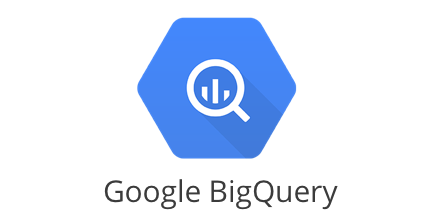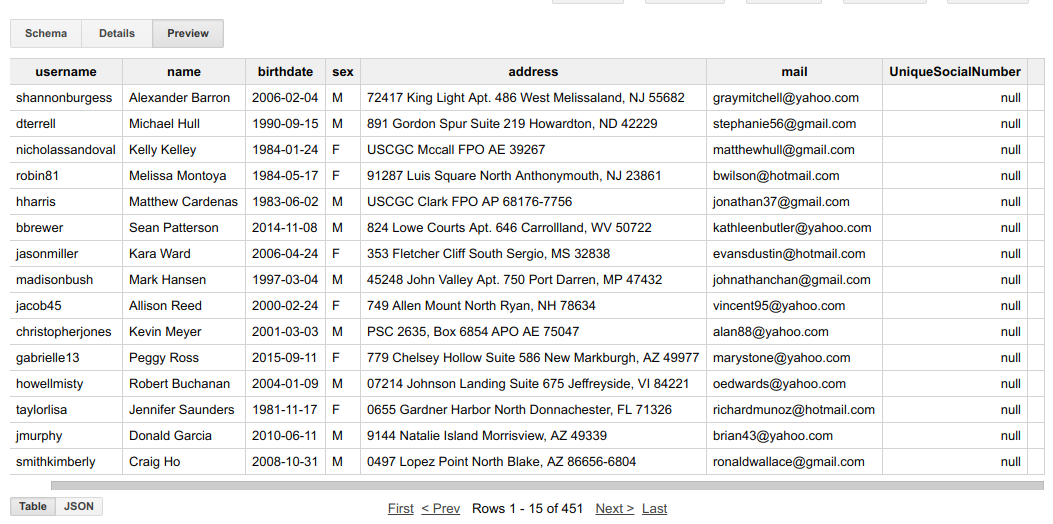
This post is 3rd part of 3-post series. In the earlier post, we understood the streaming in BigQuery Streaming with Redis - BigQuery Part-II. In this post, we are going to learn patching and updating table schemas.
Update/Patch Table in BigQuery
Table updation is important when you have data ready inside the table and suddenly you have a requirement of adding more fields in the table to do analysis.
Here, we are going to add a field and see the changes in the table after update operation.
1. Add field into schema
We are going to use same table StreamTable which we used earlier for streaming and introducing one more field as UniqueSocialNumber with datatype INTEGER. Lets add these changes to schema.py which will be used by our main program written in later steps.
$ cat schema.py
#Add field schema
TableObject = {
"tableReference": {
"projectId": "mimetic-slate",
"tableId": "StreamTable",
"datasetId": "BQ_Dataset",
},
"schema": {
"fields": [
{
"name": "username",
"type": "STRING",
"mode": "NULLABLE"
},
{
"name": "name",
"type": "STRING",
"mode": "NULLABLE"
},
{
"name": "birthdate",
"type": "STRING",
"mode": "NULLABLE"
},
{
"name": "sex",
"type": "STRING",
"mode": "NULLABLE"
},
{
"name": "address",
"type": "STRING",
"mode": "NULLABLE"
},
{
"name": "mail",
"type": "STRING",
"mode": "NULLABLE"
},
{
"name": "UniqueSocialNumber", #New Field
"type": "INTEGER",
"mode": "NULLABLE"
}
],
},
}
2. Patch/Update API in BigQuery
We have schema.py script ready and below is our main program tablePatch.py that will execute the table patch API call to bigquery.
We have two methods available in BigQuery to make updates in table.
tables.patch- This method only replaces fields that are provided in the resourcestables.update- This method replaces the entire table resource.
Patch Example :
$ cat tablePatch.py
#!/usr/bin/env python
#https://developers.google.com/api-client-library/python/
from googleapiclient import discovery
from oauth2client.client import GoogleCredentials
from schema import TableObject
# [START Table Creater ]
def PatchTable(bigquery):
tables = bigquery.tables()
tableStatusObject = tables.patch(projectId=TableObject['tableReference']['projectId'], \
datasetId=TableObject['tableReference']['datasetId'], \
tableId=TableObject['tableReference']['tableId'], \
body=TableObject).execute()
print "\n\nTable Patched"
# [END]
def main():
#to get credentials from my laptop
credentials = GoogleCredentials.get_application_default()
# Construct the service object for interacting with the BigQuery API.
bigquery = discovery.build('bigquery', 'v2', credentials=credentials)
PatchTable(bigquery)
'''
https://cloud.google.com/bigquery/docs/tables#update-schema
'''
if __name__ == '__main__':
main()
print "BQ Table Patch !!"
Update Example :
#instead of calling patch(), we call update() to apply updates
tables.update(projectId=TableObject['tableReference']['projectId'],\
datasetId=TableObject['tableReference']['datasetId'],\
tableId=TableObject['tableReference']['tableId'], \
body=TableObject).execute()
After applying changes we can verify changes in schema of bigquery table.
Visit UI :https://bigquery.cloud.google.com
You can also verify table schema by running bq CLI commands
$ bq show BQ_Dataset.StreamTable
Table mimetic-slate:BQ_Dataset.StreamTable
Last modified Schema Total Rows Total Bytes Expiration Time Partitioning Labels
----------------- -------------------------------- ------------ ------------- ------------ ------------------- --------
04 Nov 15:48:43 |-username: string 451 50837
|-name:string
|-birthdate:string
|-sex:string
|-address:string
|-mail:string
|-UniqueSocialNumber: integer
**Reference ** :
- Table Patch and Update : https://developers.google.com/resources/api-libraries/documentation/bigquery/v2/python/latest/bigquery_v2.tables.html
3. Preview of data in bigquery table
Click on table preview to see new field. It will show null with old records. You can start streaming data which contains this newly added field to be written in table going forward.

Github reference : https://github.com/sunnykrGupta/Bigquery-series
Conclusion
This was introduction to updation in BigQuery table, thus concludes our 3-post series.
From this series, we covered basic features of Google BigQuery serverless product. There are other similar product available on other clouds like AWS redshift, Azure SQL Data Warehouse which serve infinite computing resources like BigQuery.
Please comment your thoughts/feedback about this series.